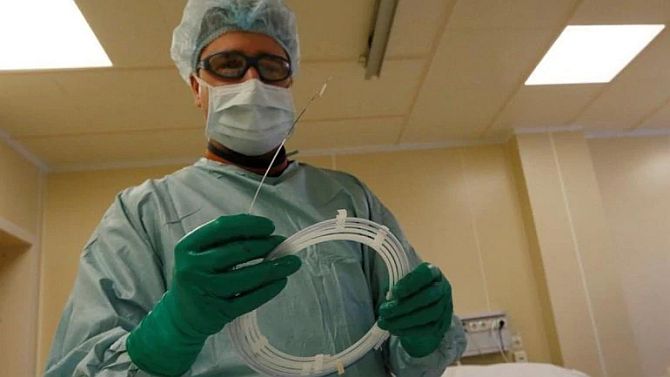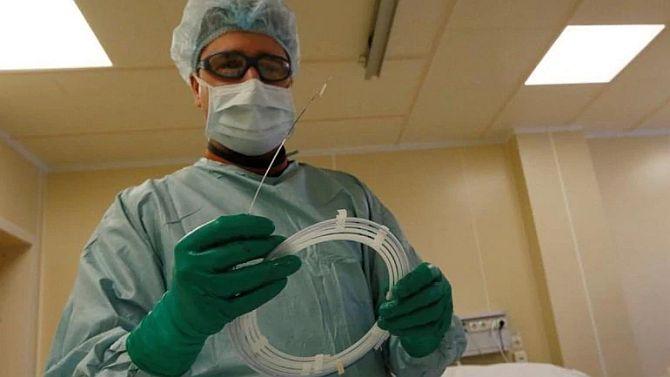The transition of Class A and Class B medical device makers to the licensing regime by October 1 seems to be an uphill task with several small and medium manufacturers saying they are still awaiting the audit from the government authorities.
If the licenses don’t come through, either due to lack of audits or MSME units not clearing the audits, then a few thousand small-scale medical device units will face the issue of business continuity in three weeks.
Class A medical devices are those with low to moderate risk to the patient or user (surgical dressings for example), while Class B medical devices refer to devices with moderate risks that require special controls (catheters for example).
According to industry sources, around 615 licenses for class A and B medical devices makers are under processing so far (till September 13).
Of these, 77 units are in Maharashtra, 76 in Tamil Nadu, 57 in Karnataka, 53 in Uttar Pradesh, 44 in Gujarat, and 37 in New Delhi.
An industry source who was part of a stakeholders’ meeting with the Central Drugs Standards Control Organisation (CDSCO), explained, “Class A medical devices license will be issued directly by the State Licensing Authority, and an audit (of the manufacturing unit) is required to be done within 120 days from the grant of license from the notified body.”
So far, some 2,492 applicants from across the country have registered with the CDSCO, sources revealed.
Around 523 applicants are considered for grant of license, and 615 licenses are under processing for class A and B.
The CDSCO has, on its part, communicated to all state level licensing authorities in April to pro-actively start processing the license applications.
“On July 11, a notification was issued requesting all manufacturers to obtain the manufacturing licenses in time,” the industry source revealed.
The problem lies elsewhere.
A Delhi-based manufacturer of orthopaedic supports (Class A device) said, requesting anonymity, “The process of moving towards a license regime started in 2020–around 30 months were given from April 2020 to class A and B manufacturers, while 42 months were given to class C & D manufacturers.
“However, as small players, we actually came to know about this late.”
He added that several small units run with 3-4 staff, who are not necessarily located within industrial estates.
“Even the USFDA or the EMA do not require compulsory licensing of such Class A devices.
“A self declaration is considered enough,” this person said, adding that smaller players can’t shift to industrial estates as it increases their cost of production significantly. So when the audit happens, their licenses may not come through.
“We plan to take this up with CDSCO soon, and hope that an amicable solution is worked out.
“As such there are more than 200-300 such units that make orthopaedic supports in the Delhi region alone.
“The level of registration and licensing is quite low among these units,” he said, adding that if things don’t work out then they may move court.
Around 90 per cent of the MSMEs would have to shut shop if they have to move to industrial estates.
The MD of a large manufacturing unit, who did not wish to be named, said the industry at large has communicated to the CDSCO and department of pharmaceuticals that over 600 Class B applications now are pending for audits.
“The industry has sought a three month extension, as it is not possible to get all these licenses within three weeks with a backlog of audits.
“The government officials are empathetic, but they are not keen to permit an extension,” the person said.
“The Union Health Ministry and CDSCO are trying to ensure continuity of business for those who had applied but did not get audited in time,” he added.
V Alva, founder of Skanray Technologies, a leading ventilator manufacturer said,”We have been asking the Government to simplify the regulatory norms by bringing in one body and single point contact adopting the world’s best instead of reinventing everything from scratch.
“Instead of the no regulations regime that brought in lots of unsafe devices, they have brought in several different regulatory bodies with no infrastructure and competence.”
“Redtape, bureaucracy, corruption and delays have increased because of the good intentions, hard work and interest in this sector.
“They mean good but the results are disastrous,” he added.
Source: Read Full Article
-
Who’s Giving To Joe Biden’s 2024 Campaign: Early Big Donors Include Seth MacFarlane, Marcy Carsey, Jeffrey Katzenberg, Netflix’s Reed Hastings And OpenAI’s Sam Altman
-
WazirX controversy bares crypto’s trade secrets in India
-
‘No need to raise capital for Citi deal’
-
US Military Pay at Every Pay Grade
-
‘Cha Cha Real Smooth’ Filmmaker Cooper Raiff & Clementine Quittner Launch Production Company Small Ideas


